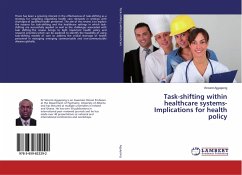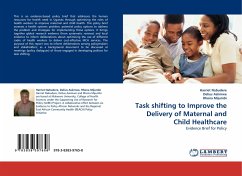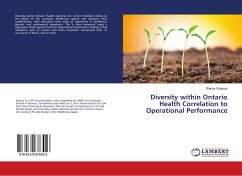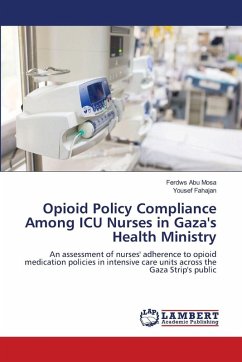
Task-shifting within healthcare systems-Implications for health policy
Versandkostenfrei!
Versandfertig in 6-10 Tagen
27,99 €
inkl. MwSt.

PAYBACK Punkte
14 °P sammeln!
There has been a growing interest in the effectiveness of task-shifting as a strategy for targeting expanding health care demands in settings with shortages of qualified health personnel. The aim of this review is to explore the reasons for task-shifting and the healthcare settings in which task-shifting are successfully applied as well as the challenges associated with task shifting.The review brings to light important health policy and research priorities which can be explored to identify the feasibility of using task-shifting models of care to address the critical shortage of health personn...
There has been a growing interest in the effectiveness of task-shifting as a strategy for targeting expanding health care demands in settings with shortages of qualified health personnel. The aim of this review is to explore the reasons for task-shifting and the healthcare settings in which task-shifting are successfully applied as well as the challenges associated with task shifting.The review brings to light important health policy and research priorities which can be explored to identify the feasibility of using task-shifting models of care to address the critical shortage of health personnel in managing emerging communicable and non-communicable diseases globally.












